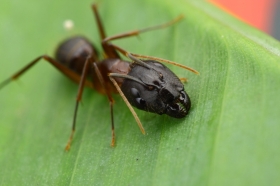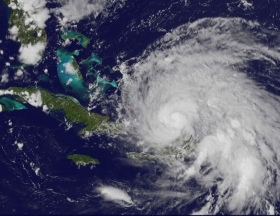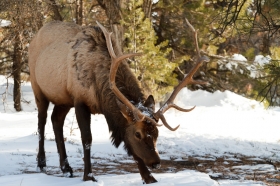 Every animal carries a record of its past in its genes — sometimes teeth show up in birds and vestigial limbs on snakes and whales. Ants are no exception. What if that potential could be tapped? And what brings it out?
Every animal carries a record of its past in its genes — sometimes teeth show up in birds and vestigial limbs on snakes and whales. Ants are no exception. What if that potential could be tapped? And what brings it out?
That’s what a group of scientists at McGill University thought when they ran into a colony of ants on Long Island. A colony of ants known as Pheidole morrisi (more commonly called big-headed ants) had members we call soldiers with really outsized heads and bodies. These were called “super soldiers.”
Pheidole, like many other ant species, are divided into castes, such as workers, queens and soldiers. Different foods are given to them when they are larvae, which triggers hormones that determine which caste the ant grows up to be.
Super soldiers occur naturally in some species of Pheidole in the southwestern United States and Mexico. But those living in upstate New York aren’t supposed to have the big heads. Ants are a pretty diverse lot and there are more than 1,100 species within even the Pheidole genus. But only eight of them naturally produce the super soldiers.
Biology professor Ehab Abouheif and PhD student Rajee Rajakumar wondered if the genes that build super soldiers were present in the Long Island ants all along, but were just waiting for some environmental factor to bring them out. The scientists first went to Arizona and collected two other species of ant in the same genus, Pheidole rhea and Pheidole obtusospinosa, which both have a subclass of super soldiers. They then observed how those two species developed their super soliders.
Source : news.discovery.com




































